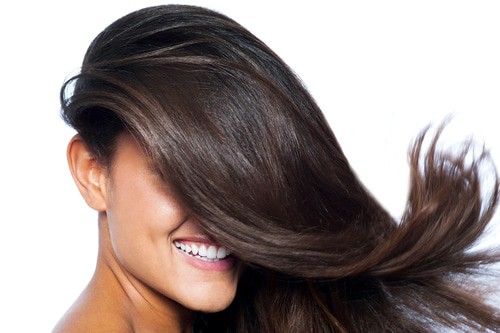What do your hair and your teeth have in common? Well, you have to clean and brush both your hair and your teeth, they both continue to grow throughout your life, and then eventually fall out. But, apart from these obvious common denominators, is that where the similarities end?
 According to Oliver Duverger’s presentation, ‘Hair Keratins as Structural Organic Components of Mature Enamel: A link between dental caries and hair disorders’ (presented at the 93rd General Session and Exhibition of the International Association for Dental Research), there could be an important link between the health of your hair, and the health of your teeth.
According to Oliver Duverger’s presentation, ‘Hair Keratins as Structural Organic Components of Mature Enamel: A link between dental caries and hair disorders’ (presented at the 93rd General Session and Exhibition of the International Association for Dental Research), there could be an important link between the health of your hair, and the health of your teeth.
Similarities Between Hair and Teeth
The major structural components of hair and teeth are very different. A hair shaft is a series of cross-linked keratin filaments, whereas tooth enamel matrix is comprised of enamel proteins that are degraded and replaced by minerals during the maturation process of tooth enamel.
However, they are both ectodermal body parts and have common mechanisms that allow them to grow and develop. The similarity between hair and teeth lies in the cross-linked organic material that is present in fully mineralised enamel.
Duverger’s Study
Duverger’s study assessed the presence and functionality of a specific set of hair keratins in this organic fraction of enamel. It is the presence of these hair keratins in developed enamel that gives the link between hair health and dental health.
Duverger performed an in-depth analysis on the enamel organ of mice that were lacking DLX3; the protein that regulates hair keratin and follicle growth and determines how healthy and strong your hair is. Using the collected data, Duverger and his team of researchers was able to assess the correlation between polymorphism (hair disorders) in the hair keratin (lack of DLX3) and the presence of cavities and decay in the tooth enamel.
The researchers found that several hair-specific keratins are expressed in mouse enamel organs and that these keratins are significantly down regulated, or less present, in the absence of DLX3. The changes in regulation of the hair keratins in enamel alter structure and reduce micro-hardness, leading to increased cavities and decay.
The study indicates an important link between hair disorders and increased risk of cavity. The lack of DLX3 and the concurrent disorder in hair keratin regulation potentially poses a serious risk to the health of mature tooth enamel.
What to Do If You Suffer from Hair Disorders
If you’re suffering from hair disorders, it’s a good idea to head to a dental professional and get yourself checked for tooth decay. The studies show that problems in one area, are likely to cause problems in the other—turns out your teeth and you hair have a lot more in common than you thought.
Your teeth and your hair are key components of feeling and looking healthy. A bad hair day can turn into a bad week and we all know the crippling effects that dental problems can have on self-confidence. The beautiful people we see in magazines and movies often have two things: flowing, healthy, shiny hair and glowing, white and bright teeth.
Healthy hair and good dental health are often a reflection of lifestyle and overall health. Even though certain elements of hair and dental health are out of our control there are things you can do to improve and maintain health.
We’ve already discussed the important parallels between hair and teeth and there are similarities in maintaining these important features of your outward appearance.
Brushing and Washing
Brushing your teeth too hard can damage your gums and make them recede from your teeth. This creates pockets were bacteria can build up and cause decay. Brushing your teeth more than twice a day can also contribute to the breakdown of the protective enamel on your teeth.
The same applies for hair. Washing your hair more than 2-3 days a week strips your hair of its natural oils, which dries out your hair and leaves it lank and weak. The way you brush your hair is also important. You should brush it twice a day, morning and evening, and it’s important to brush from the top down to prevent tearing and breaking.
Healthy Eating
As the old saying goes, ‘we are what we eat’, and this dictum is never truer than when it comes to dental and hair health. Everyone knows that sugary, acidic foods and drinks wreak havoc on our dental health. On the contrary, we know that a diet rich in calcium can strengthen enamel and boost the strength of our teeth.
It turns out that what you put in your mouth can also have a huge effect on your hair health. Getting plenty of iron and zinc in your diet helps the growth of hair follicles and Omega 3 rich foods like salmon and avocado can help to hydrate damaged hair.
So, put some effort into your hair and dental health and reap the aesthetic benefits. If you suffer from a hair disorder get along to a dental professional, like Care Dental Camberwell, and book yourself in for a dental check-up. A bad hair day could mean something a little more sinister.
